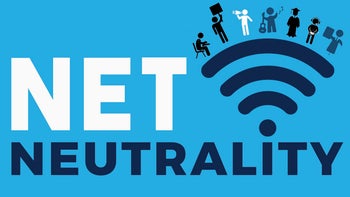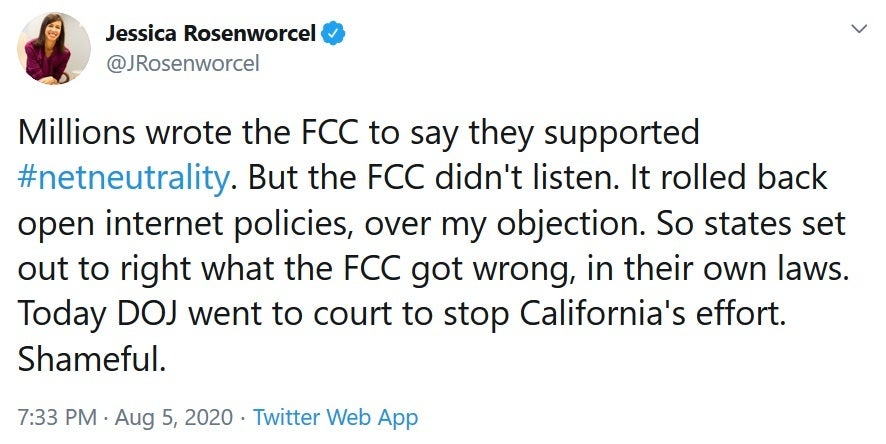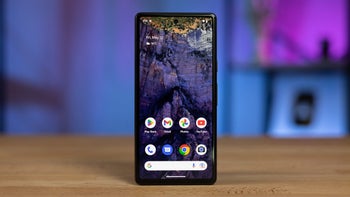DOJ seeks to ban Net Neutrality in California

Remember Net Neutrality? That was the Obama-era rule that prevented carriers and ISPs from treating certain content streams different from others. For example, a subscription streaming service like Netflix or Disney+ would not be allowed to make a deal with a wireless provider to use a higher resolution or a faster signal than the competition. The rule also prevented wireless firms from blocking the dissemination of any messages that they are philosophically opposed to. But in June 2018, the FCC, under President Donald Trump, removed the rule from the books.
DOJ prepares to ask the courts to block California from enforcing its Net Neutrality laws
Consumers were upset, at least those who understood what Net Neutrality was all about. Some states, including California, legislated Net Neutrality making it a law in those states. Before the ink dried on California Governor Jerry Brown's signature, the DOJ stepped in and filed a lawsuit. California agreed to delay implementing the law until the FCC suit was decided on. In a split decision, the U.S. Circuit Court of Appeals ruled that the FCC could not block the states from legislating Net Neutrality within their borders.

FCC chairwoman Jessica Rosenworcel is not happy with the FCC's decision to fight California in court
According to Ars Technica, it appears that the administration is ready to take on California and the other states that passed a Net Neutrality law. The opportunity to appeal the ruling has passed and the case is moving on to U.S. District Court for the Eastern District of California thanks to amended complaints filed by the administration. California has until the 16th of next month to file briefs supporting its position on Net Neutrality.
California's Net Neutrality law is basically the same as others although it does add a rule that prevents streaming content providers from paying a carrier or ISP to have their content zero-rated (meaning that the data used by the consumer to stream data from these services is not charged against his or her data bucket). It also prevents carriers and ISPs from throttling lawful data traffic. For example, Net Neutrality would have stopped Verizon from throttling the unlimited plan that was used on a very important vehicle belonging to the Santa Clara Fire Department's fleet. Verizon did this while the department was battling destructive wildfires. Fire Captain Justin Stockman noted that the download speeds for an essential device used during large disasters had been throttled from 50Mbps to about 30kbps. At the time of the wildfires, Verizon told the fire department that it would have to switch to another pricier plan if it wanted to experience faster data speeds.
FCC Commissioner Jessica Rosenworcel, a Democrat who voted in favor of keeping Net Neutrality two years ago, disseminated a tweet. The lone female on the agency, Rosenworcel wrote, "Millions wrote the FCC to say they supported #netneutrality. But the FCC didn't listen. It rolled back open internet policies, over my objection. So states set out to right what the FCC got wrong, in their own laws. Today DOJ went to court to stop California's effort. Shameful.
The DOJ claims that even though the U.S. Circuit Court of Appeals ruled that the states-like California-can legislate Net Neutrality, the state law "is preempted by federal law and therefore violates the Supremacy Clause of the United States Constitution." The DOJ is also seeking a preliminary injunction that would block the state from enforcing its Net Neutrality law until the case has been decided."
The Justice Department said, "California, however, seeks to second-guess the Federal Government's regulatory approach by enacting SB-822 (the state net neutrality law). The state law "also violates the division of regulatory authority between states and the Federal Government" in which the FCC has "exclusive responsibility" for regulating interstate communications "while leaving states with responsibility for intrastate communications. The California law violates that division because "Internet communications are inherently interstate."
The DOJ, led by Attorney General William Barr, continues to muddle the return of Net Neutrality on a state-by-state basis despite the Appeals Court ruling last year. It looks like those who want the rules to return will only be able to make this happen at the ballot box.










Things that are NOT allowed: